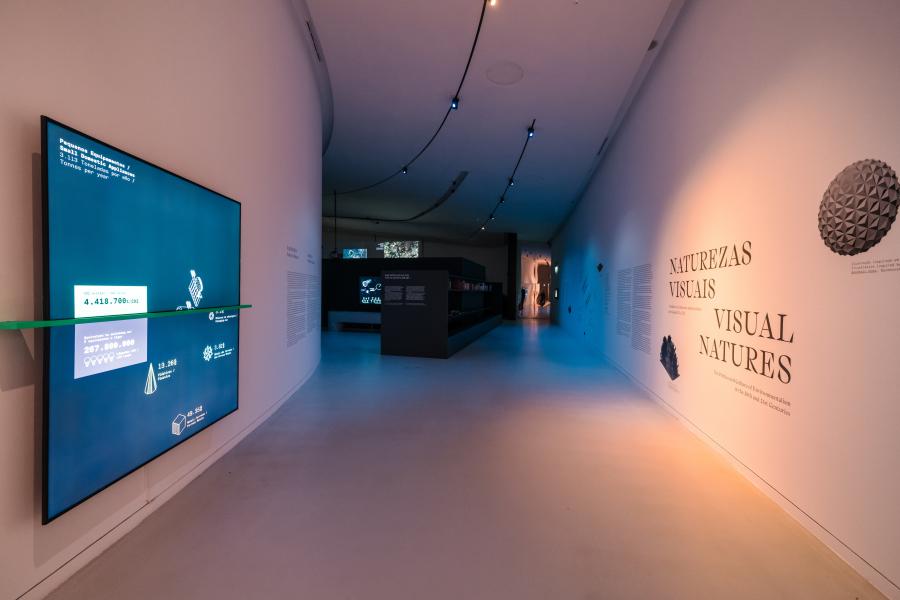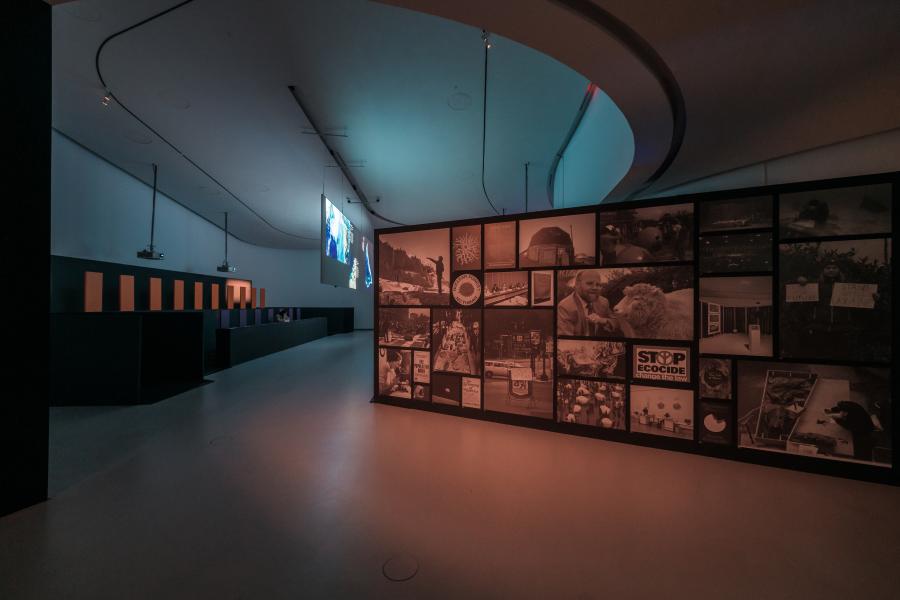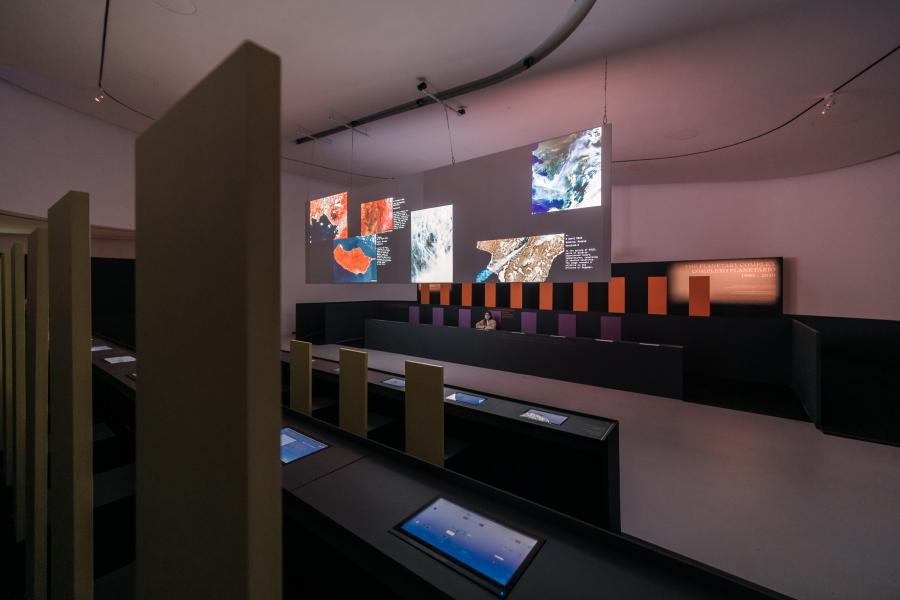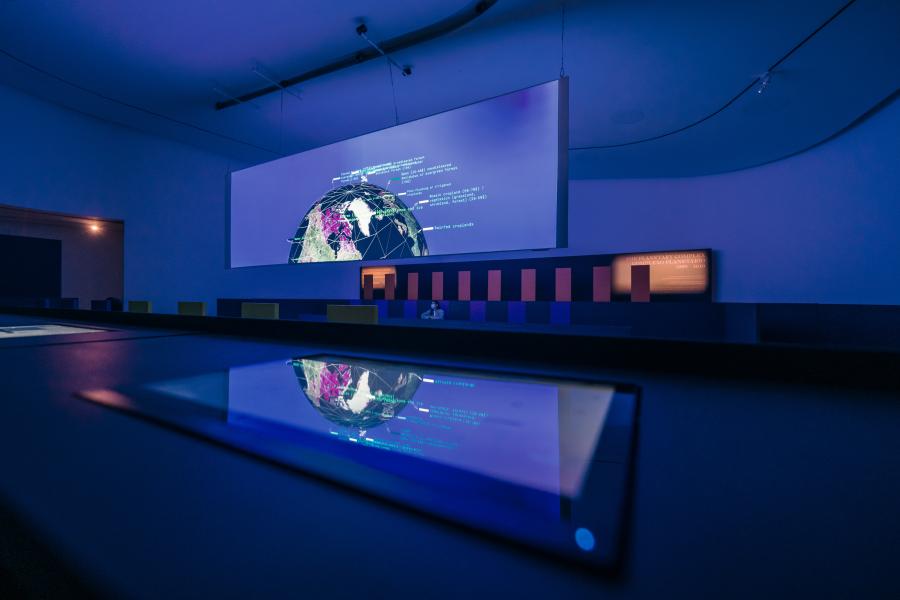Visual natures
30 MAR - 05 SEP 2022
maat
Product of more than two years of critical investigations around climate science, creative practices and eco-politics, Visual Natures is a continuation of the journey started in 2021 with the data-driven installation Earth Bits – Sensing the Planetary and the public programme Climate Emergency > Emergence, curated by the first maat Climate Collective.
This research project surveys political, social and cultural forms of collective agency that, over the course of the last one hundred years or so, demonstrate how the transforming human understanding of “nature” – philosophical, biological, economic – informs the ways in which we organise, sustain and govern our communities as an expanding planetary construct, both in concept and practice. The resulting mapping cross-references four subjects of analysis – artistic production and cultural events, technological innovations and scientific findings, social movements, and deliberations of global governance – loosely following a chronological order from the 1950s until today. The presentation defies the challenge of its encyclopaedic character by way of a thematic organisation along three main concatenated clusters – Deep Ecology 1950–1980, The Planetary Complex 1990–2010, Multinaturalism 2010–2020 – each converging around expanding meanings of ‘ecology’ and environmentalism that from the 1960s onwards have grown central in international public debate, as phenomena of global growth, natural resource scarcity and pollution became provenly intertwined.
Deliberately appropriating an expression by architect and artist Paulo Tavares (member of the maat Climate Collective 2021), “visual natures” points towards a post-anthropocentric, non-hegemonic politics and aesthetics of environmentalism to emerge as a democratic and egalitarian paradigm of coexistence within nature that transcends human-centred worldviews and refuses the ecological violence of extractivism.
Commissioned to the Brazilian architect Carla Juaçaba, the spatial design in which the research is presented aptly takes inspiration from The Conference of the Birds, a Sufi parable written in the 12th century by the Persian poet Farid al-Din 'Attar – a moral allegory of sovereignty and truth-seeking through shared sacrifice. She states: “The exhibition design is a ‘conference space’ in which we are birds discussing a new ordering between nature and man and between science and democracy, while redefining the idea of progress. It is a political space, since the discussion is about coexistence and to ‘find the right way to compose a common world, the kind of world the Greeks called a cosmos’ (Bruno Latour).”
The research contents are presented in a custom digital interface designed and developed by the studio dotdotdot in a continued collaboration with the museum since the 2021 installation Earth Bits. Visitors can browse the multimedia contents – images, videos, texts and audios – following the three main thematic chapters distributed chronologically across the 42-seat assembly designed by Juaçaba, each provided with a touchscreen through which scrolling the interface vertically allows to compare findings across the four subjects of analysis, while swiping horizontally moves through time.
The exhibition includes a Climate Library, a reading area incorporated in the installation where a vast reference list of books and publications pertinent to the various subjects addressed in the research is made available as a digital catalogue and partially in physical form.
The main body of the installation Earth Bits from 2021 is also being presented once again featuring the CO2 Mixer console and a new version of the video Planet Calls.
A series of articles and contributions extrapolated from the research will appear at maat ext. over the course of the exhibition.
Visual Natures and Earth Bits are both made possible thanks to the partnership and continued support of Novo Verde and ERP (European Recycling Platform) Portugal.








